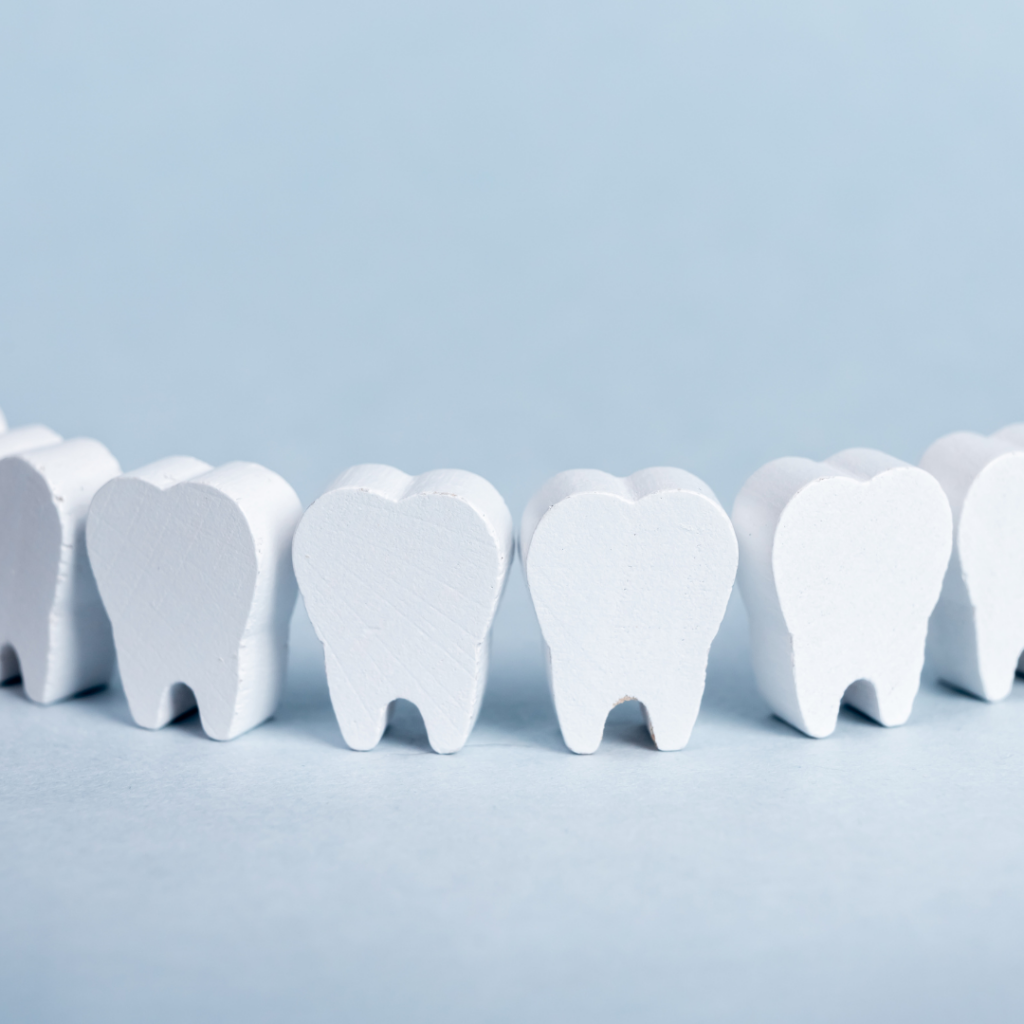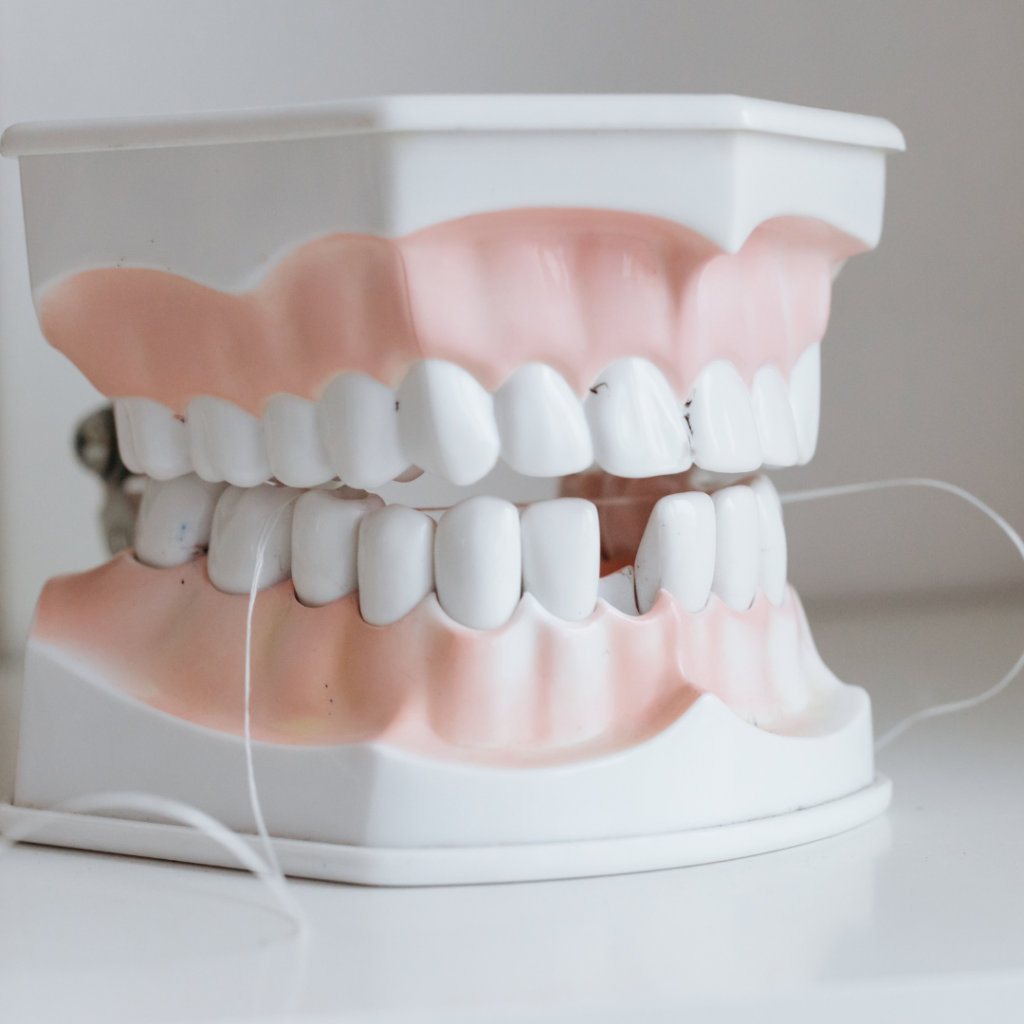SAFEGUARD YOUR SMILE

Now is the time to take a good, hard look at your gums and teeth. If you need motivation, August is Dental Implant Month, September is Dental Infection Control Awareness Month, October is National Dental Hygiene Month, and National Orthodontic Health Month, November 1 is National Brush Your Teeth Day, and November 25 is National Flossing Day.
Have you ever been awakened — often on a Sunday morning, when dental offices are closed — by the mind-bending agony of untreated gum infection, or a raging abscess caused by a neglected cavity? If not, consider yourself more than blessed. Many women who have birthed multiple babies will tell you that the process of bringing a new life into the world via vaginal delivery is a walk in the park compared with dental pain. For a really visceral reminder, re-read Maya Angelou’s “I Know Why the Caged Bird Sings” which recounts her grueling childhood trip to a veterinary dentist, since none of the other Stamps, Arkansas dentists for a hundred miles in any direction would treat a poor Black girl, circa 1935 or so.
Strong teeth are essential for many reasons. They allow you to chew your food properly. They are a crucial part of your facial design: without teeth, a person’s mouth shrinks into itself and the face collapses. And, yes, they give you that dazzling smile. But there’s more to your teeth than you may think. According to Harvard Medical School, poor oral health is linked to cardiovascular disease. There are several theories, including the fact that the bacteria that infect your gums and cause gum disease may travel throughout your body, inflaming and damaging blood vessels. Also, the inflammation caused by gum disease kicks your body’s immune system into high gear, causing damage to veins in the heart and brain. Current studies, although inconclusive at this time, also suggest potential links between gum disease and rheumatoid arthritis and pancreatic cancer. GULP.
WHAT YOU NEED TO DO RIGHT NOW:
Start with this directory: blackowneddentalpractices.com
- If your teeth hurt, book an appointment with a dentist. If you don’t have an existing relationship with a local dentist, use the directory listed above. Make the appointment and keep it. Bear in mind that you can always change dentists later. What’s important right now is to get an initial professional assessment of your condition.`
- Don’t have dental insurance? Okay. This is an occasion to use your credit card, or even borrow cash or credit from a trusted family member or friend to make an initial appointment. Once you establish yourself as a dental patient, most dentists will allow time-payments.
- If your gums are bleeding when you brush your teeth or are just plain bleeding, period! same as above.
- If you have a loose tooth, same as above.
- Even if your teeth and gums feel perfectly fine, make the appointment anyway and keep it. If it’s been a while, you need an X-ray and a cleaning, which are painless and not horribly expensive.
WHAT HAPPENS NEXT:
You may wonder, why do my teeth hurt? If you already have existing what dentists call “appliances,” meaning crowns, they may be part of the problem. Crafting a crown that works with the rest of your teeth is truly an art. Some dental professionals are more skilled than others, and it’s just as simple as that. For instance, if you have a newly installed crown which is directly above a previous crown, how do those two appliances work together? An oversized crown above may batter the heck out of a crown below, causing constant inflammation and, frankly, PAIN. The solution in this case may be to file down the size of the newer, upper appliance for an easier fit.

Consider these facts:
- Gums naturally recede with age. This is inevitable. If you’ve ever heard the expression that someone is “long in the tooth,” referencing their age, this is based upon observation of real life. Receding gums may result in loosening of teeth and tooth loss. Vigilant oral care, however, can almost always prevent tooth loss.
- Our teeth are always moving. Sounds kinda freaky, right? But it is true. Although rooted in the jawbone, the teeth are somewhat mobile, able to shift the way a tree shifts in the wind, or the way its roots move with the erosion of soil. Over time, meaning five, six, seven decades, your teeth will naturally push forward toward the front of your mouth. This does not signify disease or any abnormality. However, you may not be pleased to observe that your once-straight and even rows of pearly whites now seem a bit jumbled. While this complaint is almost entirely cosmetic, and probably poses no health risk, talk to your dentist about straightening procedures that gradually correct the “drift” associated with aging teeth.
- Advancing age means dry mouth. No dis, just fact. As we age, our saliva supply declines. This is important to understanding your mouth, gums and teeth when you are in mid-life and beyond. When we’re young, our abundant saliva keeps bacteria in check. As our saliva dries up, the bacteria basically party like it’s 1999, to quote Prince. This results in “cotton-mouth,” waking up feeling parched, sour breath, and less protection from decay and infection. The immediate solution: in addition to drinking water throughout the day, every few hours mix up a glass of warmish water and table salt, and rinse out your mouth. Yeah, it doesn’t taste great, but don’t swallow. You’re just breaking down unchecked colonies of aggressive bacteria that mean to do you harm.


LET’S TALK ABOUT THE FEAR.
People avoid the dentist because of two flavors of fear: fear of the pain, and fear of the cost. We truly understand. Your Medicare may cover basic dental care, meaning an annual check-up, maybe an X-ray, and a professional cleaning. Beyond that, yeah, it’s not cheap. But it’s so important, and you need to do this for yourself.
The bottom line: if you visit your dentist every year, the threat of that horrific pain (and equally horrific accompanying cost) is greatly diminished. Following a cleaning, your dentist will detect signs of decay and evidence of gum disease, and recommend a treatment plan. Gum disease begins as what’s called gingivitis, which is reversible. It’s basically inflammation of the gum, as the result of overactive bacteria (meaning that you have not been disturbing or interrupting the colonization of bacteria frequently or effectively enough with your toothbrush, floss, Waterpik, etc.) The bad part: gingivitis is painless, although if you look closely in the mirror, you will see that your gums look pale, may be bleeding, and are shrinking down around the base of your teeth. So it’s tempting to just ignore it, hoping that it will just go away. But teeth and gums don’t understand Magical Thinking. Gum shrinkage is not a good thing, because your teeth become less stable in the jaw-bone. Bacteria proliferate in “pockets,” and that eventually means some deep pockets ($$$$$$$) for you to make it alright.
Untreated gingivitis always leads to full-blown periodontal disease, which means pain, extractions and tooth loss, and big bucks. Don’t go there if you can help it.
And in all fairness, things happen. You may discover that a wisdom tooth is impacted– no fault of your own (and yes, it’s gotta come out). Or, heaven forbid, you may experience an impact that loosens a tooth (in a car accident). The fact that accidents happen is all the more reason to establish a friendly relationship with a competent local dentist.
Fear is a natural response to all of the above. The truth is that most of the suffering can be prevented, reversed, or minimized by taking charge of your oral health. If you’ve neglected your teeth and gums, no judgment. It’s never too late to start taking care of yourself in this way.
Loving Reminders:
The real purpose of brushing and flossing is to prevent oral bacteria from colonizing and overpopulating on your gums and teeth. Amazing though it may seem, most American homes — regardless of race, ethnicity, or geographic region — did not have running water prior to World War II. This meant that people did not brush their teeth often. The toothbrush that was issued to American G.I.s as part of their basic gear as they went into active duty was often the first toothbrush that the recruit had ever owned. With this in mind, generations past accepted tooth loss as inevitable, which we now know to be untrue.
So, this means that by brushing and flossing twice a day, rinsing your mouth throughout the day, and seeing your dentist once a year for a cleaning, you are making history. The most important consideration by far is to keep your mouth free of infection.
What if I do lose a tooth?
It’s traumatic to lose a tooth. If the socket from which the tooth was removed is left open, your remaining teeth with naturally drift toward the extraction site to try to “fill” the gap. This may or may not be a cause for concern. If your biting, chewing, and speech are not affected, then it’s a cosmetic problem. An implant is the most durable solution, requiring several months of recovery and (usually) several thousand dollars. A partial bridge is less of a hassle and less of an expense.

Is an electric toothbrush better?
Short answer: yes. It’s easier. But the truth is, if you are vigilant with your regular drugstore toothbrush, you can keep bacteria at bay. In FACT, toothpaste isn’t absolutely necessary. Baking soda and running water twice a day work wonders. We don’t recommend it, but even buffing your teeth and gums with a soft rag soaked in salt water twice a day will neutralize bacteria.
My front teeth gap.
Dentists call this diastema. On its own, this is not considered by dentists to be a health problem, unless it arises as the result of gum disease and bone loss. If you’re otherwise healthy and the gap bothers you, your dentist can create a small porcelain wedge to place between your front teeth, or use dental bonding to close the space. Porcelain veneers are another option. Bear in mind that the gap is regarded as a thing of beauty in Mother Africa.
Do you grind your teeth at night, though? If so, the gap may re-open. Your dentist will be able to tell if you’re a grinder or clencher (known as bruxism), and may suggest that you wear a retainer mouthguard at night to keep your teeth stable.
#
Great article! Thanks for the information.
Glad it was informative! Thanks for reading 📚